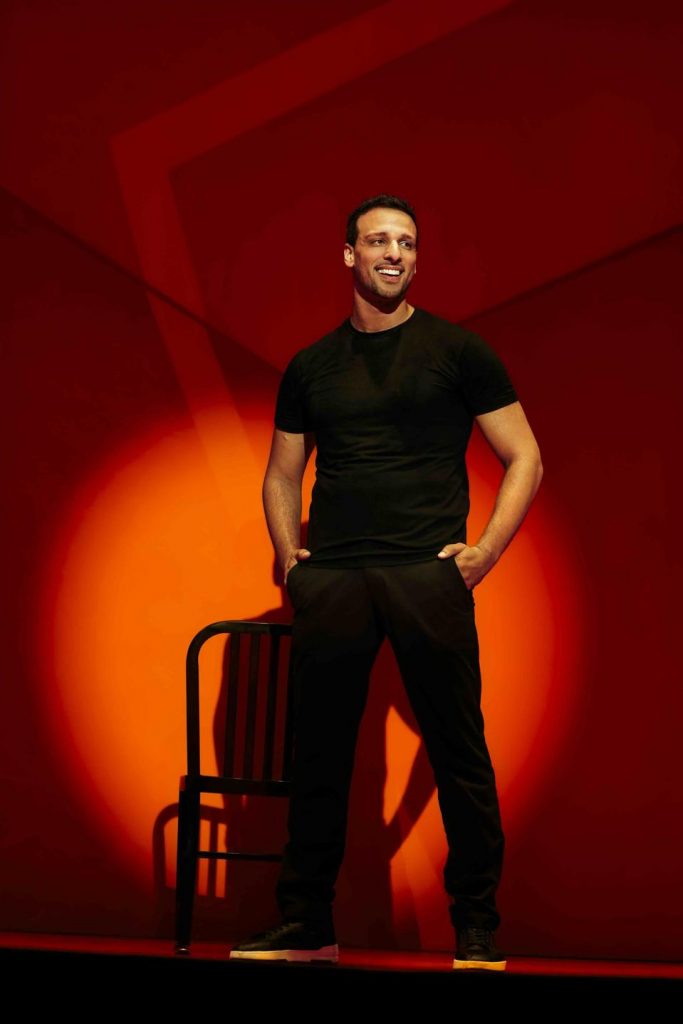From his earliest days, Ari’el Stachel believed that he did not belong. With his mother, an Ashkenazi Jew from New York, and his father, a Yemenite Israeli whose family had lived in the Arab world for decades, Stachel felt like the very definition of “other.” And he struggled to reconcile those worlds.
“When 9/11 happened, all this atmosphere of anti-Arab, anti-Islam sentiment permeated the country, and I was pretty isolated and alone,” he says. “I would go home from school and be with a dad with a thick accent and a beard who didn’t see himself in the lens that Americans were seeing him in.” His father saw himself as Jewish and Israeli. “But kids at school couldn’t see my dad and think, ‘Oh, he is Jewish,’” says Stachel. “And they saw me as Arab.”
So Stachel lived one reality at school and a different reality at home. “It was painful because every time people saw or heard my dad, I got lashed into the worst stigma that could exist for a kid at the time.” Constantly changing schools, trying to reinvent himself, Stachel did all he could to hide his father’s identity and his own truth. He longed to be accepted and seen for who he was.
“It was a performance every single day, twenty-four hours a day,” says Stachel, who won a Tony Award for his knockout performance as a sultry Egyptian trumpet player in the Band’s Visit. On top of this, Stachel struggled with anxiety and OCD from a young age. It added to the challenge of navigating multiple identities. That intensity—the daily effort of being someone he wasn’t—never left him. It took over who he was, and that constant anxiety became a part of his script.
After years of performing in other people’s stories, Stachel discovered he had to tell his own story. His exhausting dance of trying to belong sparked his show Other, now playing Off Broadway at Greenwich House Theater. Directed by Tony Taccone and produced by LaChanze, Other is a funny, soul-baring solo show. Not only does the play delve into identity, anxiety, and self-acceptance, it is also Stachel’s love letter to his family and younger self.
Using humor, honesty, and storytelling, Stachel guides audiences through fraught experiences of his upbringing, mining the many sides of himself. And he invites others to see their own complexities reflected on stage. As he shares in Other, “How can I pick a side when all sides are inside of me?”
The seeds for Other were planted years earlier when Stachel was a student at New York University and taking a dramatizing history class. “Everyone was finding these unbelievable stories, writing about things in the 1800s,” he says. “And I was writing about my life and how people perceive me and the intense experience of going through high school.” At that point he was still in the throes of hiding his identity. “It was intense,” says Stachel. “But I accepted it as a fact of life.”
Even after achieving great success on Broadway and winning a Tony Award, Stachel felt a pull to understand and unearth how the boy who spent his life hiding his identity would grow into an artist. He had to share his story, no matter how vulnerable it made him. “After spending so many years hiding, I just couldn’t hide anymore,” he says.
For seven years Stachel devoted himself to writing Other. He met with playwright and actor Gretchen Cryer, who was his writing coach, and churned out countless drafts. “For every word in the show, I probably have written a hundred,” he says. When Stachel’s early writing began to take shape, producer Orin Wolf, who produced the Band’s Visit, suggested he find a great director. That search led him to Tony Taccone, who became an essential creative collaborator and guide.
Taccone challenged him to dig deeper. “He kept pushing me,” says Stachel. “He asked, ‘Why do you want to tell this story about this kid? Why does the adult want to do it? Who is the guy guiding us through the story?’”
And in a moment of breakthrough, he realized the truth he needed to tell: “He wants to be less anxious,” says Stachel. “Those words came out of me. It wasn’t conscious.” The next day Stachel returned to Taccone with twenty-five new pages. And for the first time, he found the voice of the narrator who would carry the story of Other.
That raw and vulnerable voice resonated deeply with those who encountered Other. Among them was LaChanze, one of the show’s producers, who was struck by its relatable honesty and timeliness. “In these anxious and divided times, when so many of us feel disconnected or othered, this play offers us something rare,” she says. “It’s an invitation to listen, to open up, to find a little more empathy for one another.”
That response has been the most meaningful reward for Stachel, who cherishes meeting audience members in the lobby after he performs. “People come up to me after the show and tell me they see themselves in it. That it made them want to call their parents or finally talk about something they have been afraid to share,” he says. “It has shown me that by being vulnerable, I am helping other people feel seen.”
For Stachel Other has transformed a lifetime of hiding into an opportunity for healing and connection. He shares how his parents have always guided him toward the concept of tikkun olam, the idea of repairing the world. Other has given him that sense of purpose, especially as an artist. “With all of the gifts that I have been given and all of the effort that I made to sharpen my craft and become an actor,” he says, “this is how I can make a difference.”

